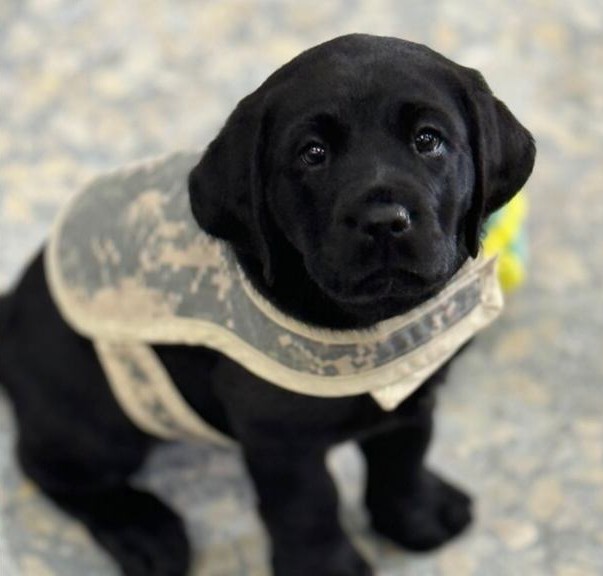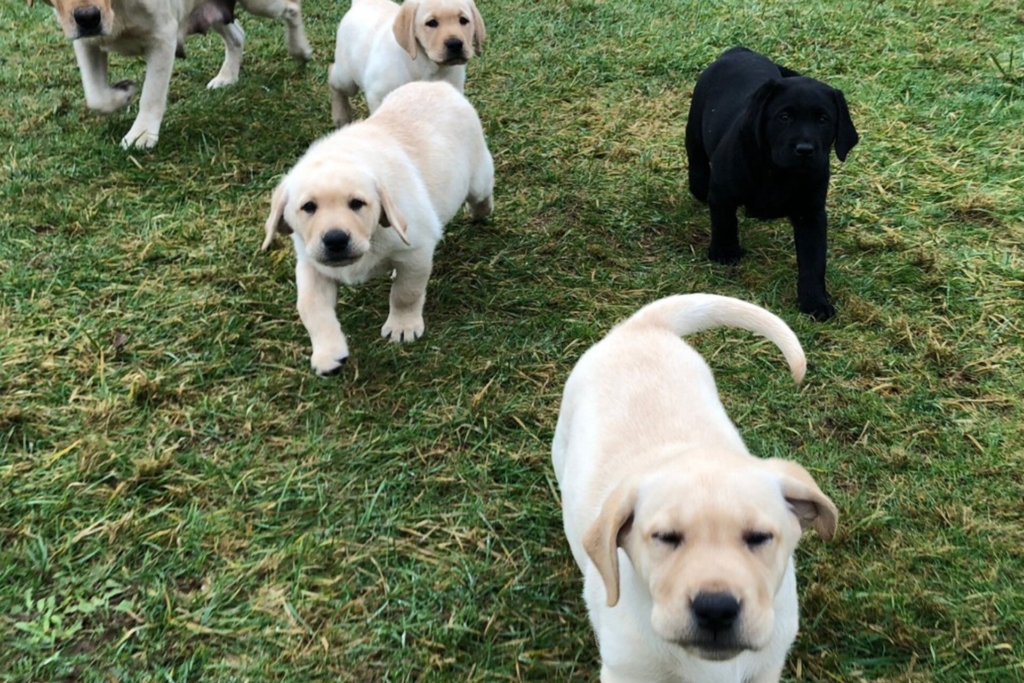The Healing Power of PAWS: Veterans, Puppies and the Journey to Healing

For veterans living with post-traumatic stress disorder (PTSD), finding effective ways to manage symptoms and reclaim a sense of purpose can be a challenging journey. Enter the Puppies Assisting Wounded Veterans (PAWS) pilot programs—a groundbreaking initiative that pairs veterans with service dogs in training, offering a unique blend of companionship, purpose, and healing. Launched under the Puppies Assisting Wounded Servicemembers for Veterans Therapy Act of 2021, this five-year pilot program is currently active at five VA medical centers across the United States: Anchorage, Alaska; Asheville, North Carolina; Palo Alto, California; San Antonio, Texas; and West Palm Beach, Florida. As we mark its progress in 2025, the value of this program is becoming increasingly clear—not just through anecdotal success stories, but also through data being gathered by research services providers like American Directions Research Group.
A Tail-Wagging Approach to Wellness

The PAWS program isn’t about handing veterans a fully trained service dog and calling it a day. Instead, it invites eligible veterans with PTSD to actively participate in an eight-week training process, working alongside professional trainers to teach puppies essential commands like social interaction, retrieval, and mobility. These dogs will eventually serve other veterans, but the act of training them offers immediate benefits to the participants. For many, it’s a chance to step outside their struggles and focus on something positive—a wagging tail, a playful nudge, or the satisfaction of watching a puppy master a new skill.
What the Data Says: American Directions Research Group Surveys
To truly understand the impact of PAWS, the VA has partnered with federal research contractor American Directions Research Group to survey participants and collect meaningful data. These surveys are shedding light on how the program affects veterans’ mental health, social functioning, and overall well-being.
The data collection is ongoing, but it’s already clear that PAWS is striking a chord. The VA’s PTSD program manager, Erin Romero, has noted that the pilot is designed to quantify outcomes and satisfaction, paving the way for potential expansion. As of April 2025, with the program nearing its midpoint, these surveys are critical to shaping its future. Will it become a permanent fixture in VA care? Could it extend to other mental health conditions like depression? The answers lie in the numbers—and the stories—emerging from participants in their interviews with ADRG.
Why PAWS Matters

The value of the PAWS pilot programs lies in their ability to meet veterans where they are. PTSD can leave individuals feeling disconnected, hypervigilant, or stuck in a cycle of distress. Traditional treatments like therapy and medication are vital, but they don’t always address the emotional void that many veterans experience. PAWS fills that gap with a “paws-itive” twist—offering a low-stakes, high-reward activity that boosts mood, builds community, and honors the veteran’s desire to serve others.
Moreover, the program challenges the stigma around mental health care. By framing dog training as a complementary wellness activity rather than a clinical intervention, it invites more veterans to participate without fear of judgment. The American Directions Research Group’s surveys reinforce this, showing high satisfaction rates among participants who might otherwise shy away from conventional programs.
Looking Ahead
As the PAWS pilot continues through 2026, its success could redefine how we support veterans with PTSD. The data from American Directions Research Group will play a pivotal role in this evolution, offering hard evidence of what many already suspect: that puppies and purpose can be powerful medicine. For now, the program remains a beacon of hope—one that proves healing doesn’t always come in a pill bottle or a therapy chair. Sometimes, it comes with a wet nose and a wagging tail.
If you’re a veteran interested in PAWS or know someone who might benefit, reach out to your local VA to see if it’s available near you. And if you’re just here for the puppy pics—well, we don’t blame you. They’re pretty irresistible.
About American Directions Research Group (ADRG)
With decades of experience, ADRG provides government agencies, nonprofits, and market researchers with actionable insights grounded in ethical, live-voice data collection.
Are you looking to improve the reliability of your next study? Contact ADRG today to discuss a custom multi-mode research strategy.